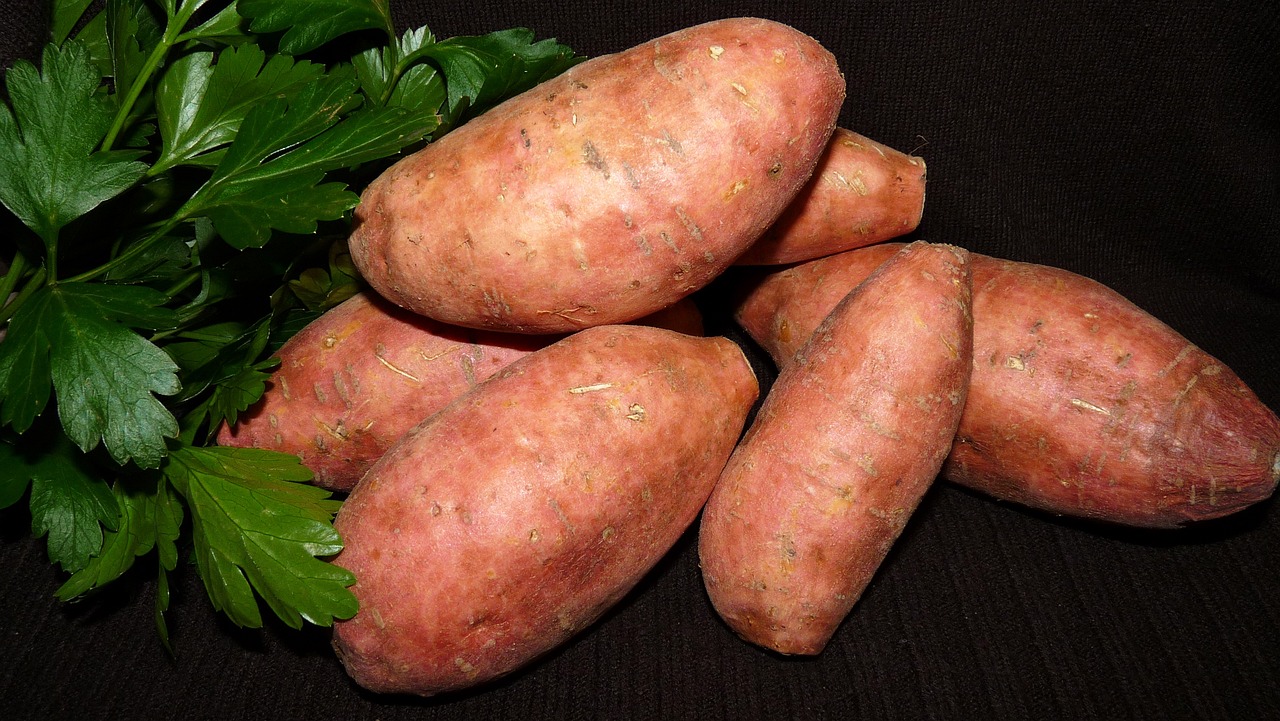
Sweet potatoes have garnered attention as a wholesome and nutritious human food, but what about our canine companions? As responsible pet owners, it’s essential to understand the implications of incorporating sweet potatoes into our dogs’ diets. In this article, we’ll explore the potential benefits and risks of feeding sweet potatoes to dogs, backed by expert advice and insights.
The Nutritional Value
Sweet potatoes are indeed packed with essential nutrients for humans, and they offer similar benefits for dogs. These root vegetables are rich in vitamins, including A, C, and B6, as well as minerals like potassium and manganese. Additionally, their high fiber content supports digestive health, making them a potentially valuable addition to a dog’s diet.
Can Dogs Safely Eat Sweet Potatoes?

The short answer is yes, dogs can safely eat sweet potatoes when prepared appropriately. Before feeding them to your furry friend, there are essential considerations to keep in mind:
a) Cooking Method: Always cook sweet potatoes thoroughly before offering them to your dog. Raw sweet potatoes can be challenging to digest and may cause gastrointestinal upset.
b) No Additives: Avoid seasoning sweet potatoes with additives like salt, butter, or sugar, as these can be harmful to dogs.
c) Moderation: While sweet potatoes are nutritious, they should only be given as an occasional treat and not a staple food. Excessive consumption may lead to an upset stomach or an imbalance in their diet.
Benefits for Dogs

When given in moderation, sweet potatoes can bring various health benefits to our canine companions:
a) Digestive Health: The fiber content in sweet potatoes supports healthy digestion and can be particularly helpful for dogs with sensitive stomachs.
b) Antioxidant Boost: The vitamins and antioxidants in sweet potatoes contribute to overall immune system support and help combat oxidative stress.
c) Energy Source: The natural sugars in sweet potatoes provide a source of energy for active dogs.
Risks to Consider

While sweet potatoes can be beneficial, there are potential risks associated with their consumption:
a) Weight Gain: Sweet potatoes are calorie-dense, and overindulgence can lead to weight gain in dogs, especially if their regular diet isn’t adjusted accordingly.
b) Allergic Reactions: Some dogs may be allergic to sweet potatoes. If you notice any signs of allergies like itching, redness, or gastrointestinal issues, discontinue feeding sweet potatoes and consult your veterinarian.
c) Pancreatitis: Dogs with a history of pancreatitis or prone to the condition should avoid high-fat treats like sweet potatoes.
Veterinary Insight

Seeking guidance from a veterinarian is crucial before introducing new foods into your dog’s diet. A professional can assess your dog’s individual health needs, potential allergies, and dietary requirements to determine if sweet potatoes are suitable for them.
In conclusion, sweet potatoes can be a nutritious and delicious treat for our furry friends when provided in moderation and prepared appropriately. Remember to prioritize your dog’s health and well-being by offering a well-balanced diet and seeking professional advice when necessary. The key is to cherish every moment with our canine companions and ensure their diet supports a long, healthy, and happy life by their side.